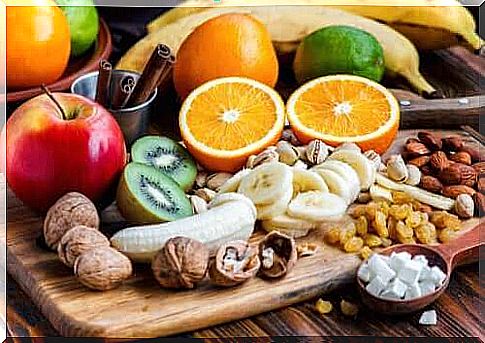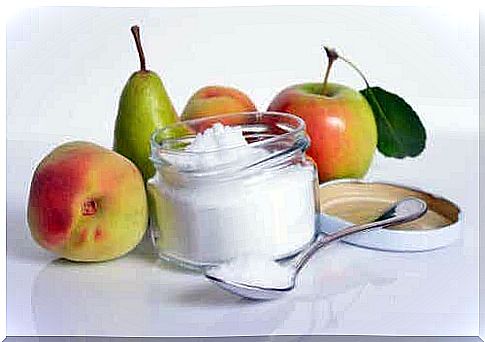Are Fruit Sugars Really Harmful?

From a chemical point of view, the natural sugars contained in fruit and artificially processed sugar are the same thing. However, their health effects are completely different. In fact, people should rather eat fresh fruit to satisfy their lust for sweets, and for many reasons.
The body processes fruit sugar differently because the fibers in the fruit minimize the effect of glucose in the blood. When experts talk about limiting sugar intake, they mean added sugars in foods found in pastries, coarse, cereals, fruit juices, ketchup, soft drinks, and so on.
The World Health Organization (WHO) guideline “Recommended Sugar Intake for Adults and Children” published in 2015 explains sugar science in more detail.
In it, the WHO clearly distinguishes between two types of sugar, natural sugar – that which occurs naturally in unprocessed fruit and vegetables – and added sugar.
The latter are associated with a higher risk of caries and chronic diseases and should therefore not exceed 10 percent of your daily caloric intake. However, the WHO states that their recommendations do not apply to sugars in their natural form.
Added artificial sugars vs. natural sugars
Many foods naturally contain sugars or contain nutrients that are converted into sugars in the body after assimilation.
Thus, fruits are a source of fructose, while milk and dairy products, for example, are a source of lactose. Similarly, vegetables can have varying amounts of fructose and also complex carbohydrates that are converted to glucose after digestion for the body to use.

As you can probably tell, the majority of foods, with the exception of meat, contain natural sugars. In contrast, most industrially processed foods contain added sugars. The food industry adds sugar to foods to emphasize their taste, increase energy intake, or achieve other properties.
For example, industrially produced biscuits, snacks and candies contain processed sugars. They are the main products manipulated by the food industry. One reason is the dependence caused by processed sugar. As a result, it will increase sales of the above products, according to an article published in the British Journal of Sports Medicine.
Effect of fructose on the body
Simple sugars, such as glucose, fructose, or others, have the same effect on the body because they are energy substrates. However, simple sugars do not occur naturally in isolation. Instead, they come along with other nutrients with daily foods.
As you can see, the main difference is in the process that causes fluctuations in the amount of glucose in the body. This largely depends on the other components of the food or product in question.
The soft drink does not contain essential fibers, vitamins or minerals for the body. It can be easily digested by the body because it is liquid and the sugar is easily absorbed into the bloodstream.
Likewise, vegetables contain healthy micronutrients, fiber and plenty of complex carbohydrates. Vegetables take longer to melt and reach blood circulation than fruits. Therefore, vegetables are also more filling and nutritious, even if they contain sugar. In fact, the glycemic index of vegetables is not high.
Health effects of fruit
Fruits have many health effects. They promote intestinal function and stimulate the intestines because the fruit is easily digestible. This is because the fruit is high in water and fiber, free of dense starches or fats, and has an estimated melting time of about 20 minutes.

Fruits can also help with weight management. A study published by Harvard researchers in 2016 suggested that its antioxidant flavonoids may have a positive effect on metabolism.
People who include high levels of flavonoids in their diet are more likely to maintain a healthy weight as they age compared to those who do not consume foods rich in flavonoids. The fruits that seem to offer the most benefit are apples, blackberries and pears.
Another positive feature of fruits is that their soluble fiber stimulates the selective growth of the microbe. This improves metabolism and reduces the risk of obesity.
Fruit sugars are essential
It is good to remember that fruit sugars are not harmful to our health. So reduce the consumption of highly processed products.
Remember that jam cannot be considered a serving of fruit, nor can fruit juice! Sugars in canned fruit are also not counted as fruit sugars.









